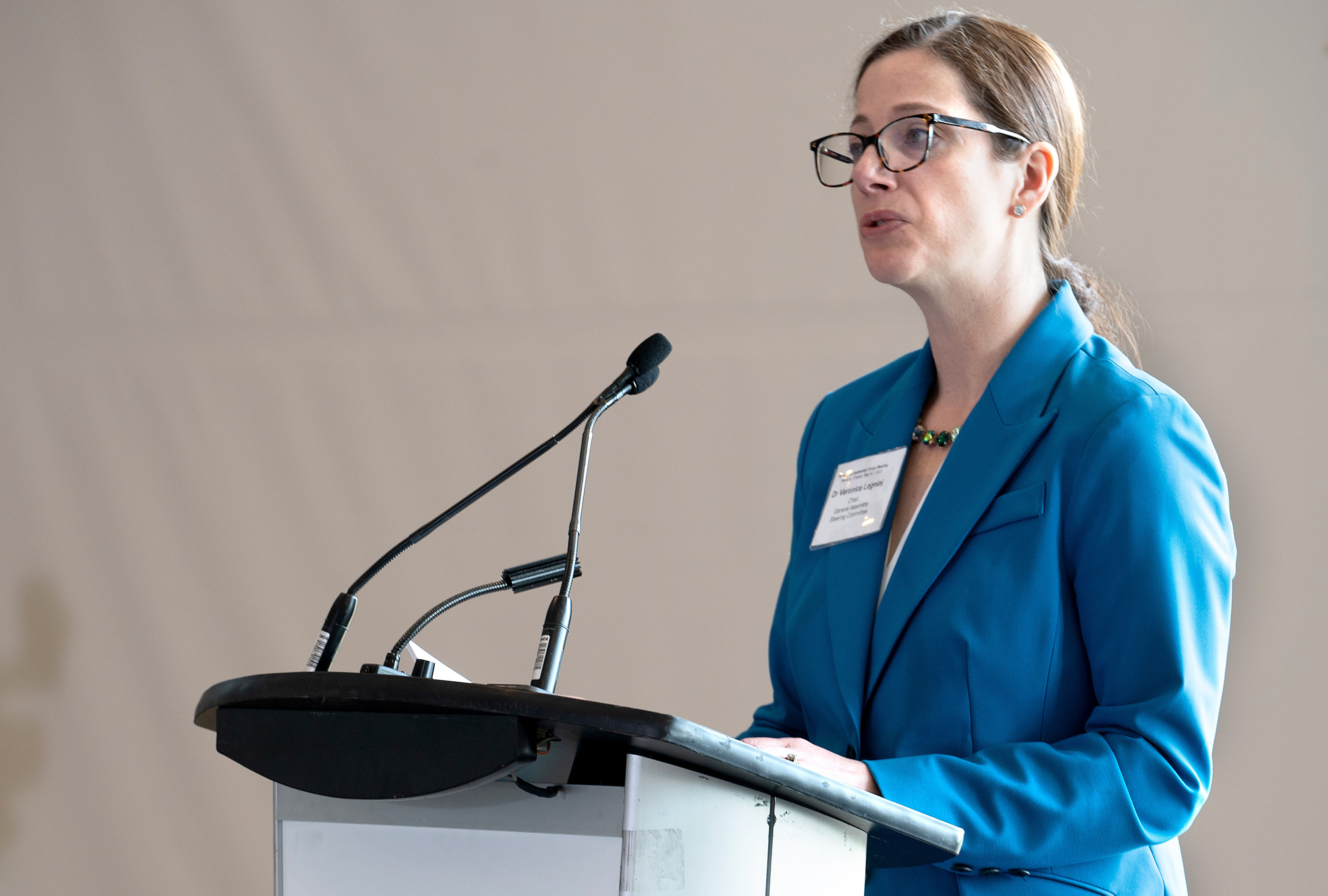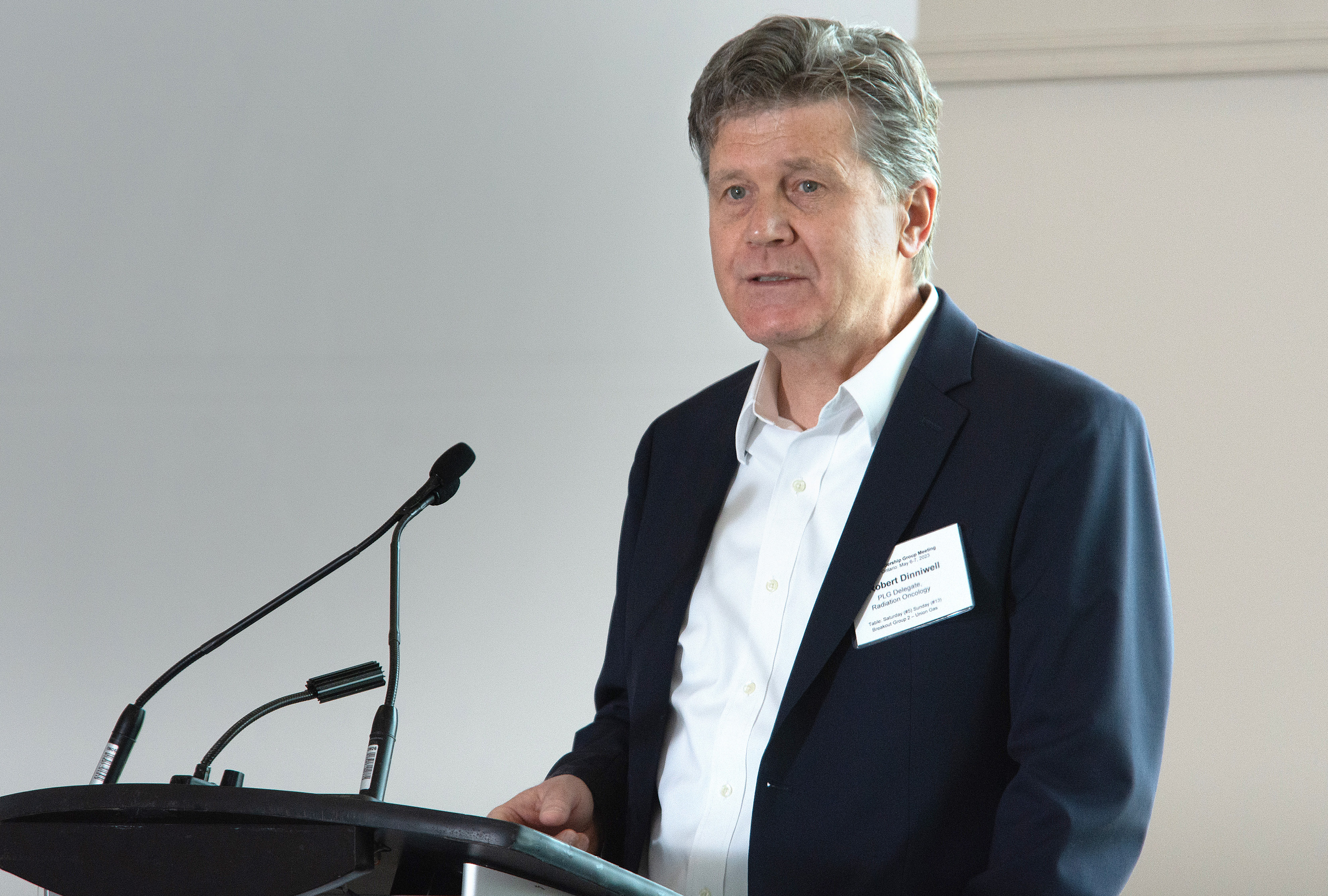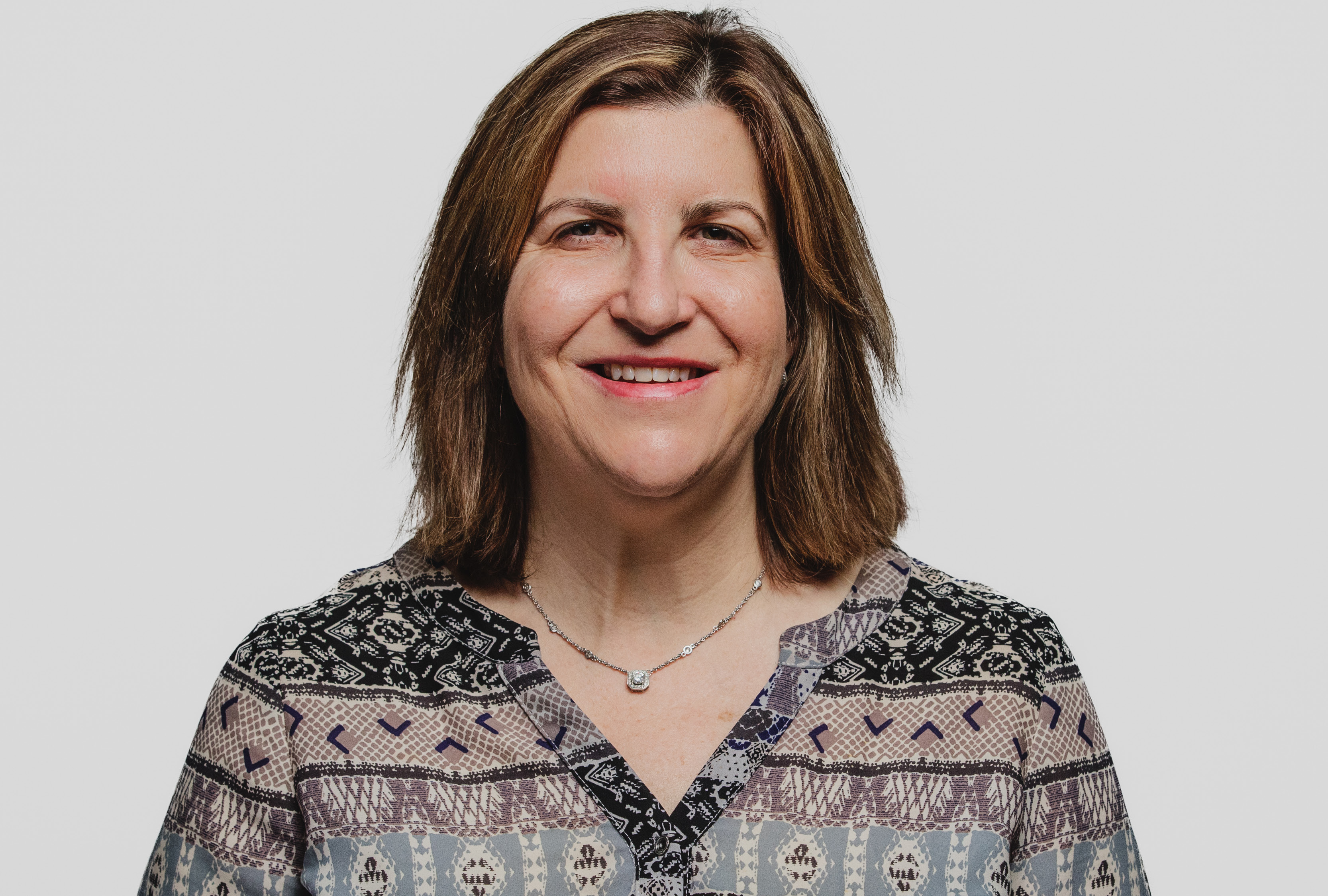Maturing engagement process generates ideas, attracts applicants
The OMA General Assembly has added three new priorities to its working agenda as progress continues on the association’s governance transformation.
OMA members submitted 60 ideas to the Priority and Leadership Group this year, Dr. Veronica Legnini, General Assembly Steering Committee chair, told delegates to the group’s annual meeting in Windsor this past May. Delegates narrowed down the ideas to three priorities for assembly panels to tackle in 2023.
The Advocacy Panel will explore enhanced access to physician-led multi-disciplinary care. The Issues and Policy Panel will prioritize initiatives to motivate the recruitment of family physicians. And the Compensation Panel will look into allowing physicians the option to bill by time instead of fee code.
“The mandate of the Priority and Leadership Group is to set member-driven priorities for the organization that are achievable and aligned with the strategic plan, helping to modernize the organization and health care in Ontario,” said Dr. Legnini, a family doctor in Kingston.
The new slate of priorities landed just as the OMA Board approved for implementation the first recommendations to come out of the governance transformation process, launched two years ago.
“It’s exciting to see how many members are willing to put their hands up to work in a new way with the OMA on behalf of members” — Dr. Veronica Legnini
 The first approved recommendations, presented by the Compensation Panel, are designed to optimize the engagement of OMA members in the negotiations process.
The first approved recommendations, presented by the Compensation Panel, are designed to optimize the engagement of OMA members in the negotiations process.
New organization structures intended to increase the OMA’s relevance with members have had a positive impact, Dr. Legnini said.
Dr. Veronica Legnini is a family doctor in Kingston and chair of the OMA's General Assembly Steering Committee.
For example, panel chairs at the Windsor meeting reported large numbers of applicants coming forward to be part of the working groups.
“It’s exciting to see how many members are willing to put their hands up to work in a new way with the OMA on behalf of members. We have been intentional in fostering this interest in the hopes of seeing just this outcome,” she said.
“I have seen this renewed interest in members from diverse backgrounds and who have never worked within the OMA before. New blood and fresh perspective, balanced with experience, is critical to keeping the work moving forward.”
Engagement is also reflected in the record number of ideas members submitted for the group’s consideration. The 60 ideas were reduced to six top topics for each panel. PLG delegates then spent much of their two-day meeting reviewing, discussing and sometimes refining the ideas, followed by a final vote to choose the three top 2023 priorities.
The Advocacy Panel’s 2023 priority to enhance access to physician-led multi-disciplinary care aims to ensure patients obtain the right care at the right time in the right place (by the best-suited and more affordable health-care provider), reducing wait times and improving MD wellbeing.
The Issues and Policy Panel’s task is to prioritize initiatives that motivate the recruitment of family physicians. Suggestions included needing better remuneration for family physicians, a reduction in the burden of administrative forms and the promotion of family practice as a career among learners.
The top new priority for the Compensation Panel would allow physicians the option to bill by time instead of fee code, giving family doctors and consulting specialists the flexibility to deal with multiple needs in one visit (for instance, for patients with complex problems) and still be paid fairly for their work.
The meeting’s delegates also heard some of the lessons learned over the first two years of the renewed General Assembly’s process.
Panels realized, for instance, that there must be realistic expectations around timelines. Member-driven processes are limited by members’ schedules. And the OMA can influence, but not force, external stakeholders to implement recommendations.
Moreover, the panel and PLG process isn’t designed to deliver quick fixes but works better at creating mid- to long-term solutions.
Dr. Legnini said that once PLG delegates have a firm understanding of the types of ideas and timeline the structure can deal with, it should become clearer to the membership at large.
“I certainly hope that the recently approved recommendations will have a tangible effect for members (during) the upcoming negotiations cycle.”
She told the PLG meeting that the next big project for the General Assembly Steering Committee will be providing better support to the networks — the groups associated with areas of practice such as academic, diagnostic, medical, primary care, regional and surgical.
With panels and working groups dealing with eight priorities, the steering committee also wants to take a look at the General Assembly’s capacity to take on additional priorities, she said.
Panel chairs reported to the Windsor meeting on the progress of their work so far. Each year, starting in 2021, the PLG has set new priorities. The panels do initial research and investigation on the topics chosen, including holding meetings with subject matter experts and representatives from other jurisdictions.
Then the panel chooses a working group from OMA member applicants and turns the more focused priority over to that group to develop recommendations.
The Issues and Policy Panel has completed scoping, the focusing and refining stage of panel work, on its 2021 priority — data support for work and health human resources. It has also created a working group to generate recommendations.
Panel chair Dr. Michael Finkelstein, deputy medical officer of health for Toronto Public Health, said there were 28 applicants for the seven-member working group, which has held its first meeting.
“We trust this group is well on its way to developing recommendations,” he said.
The panel is seeking applicants for a working group for its 2022 priority — centralized lab requisitions for imaging and lab testing.
When scoping the priority, the panel met with representatives from OceanMD, Ontario Health, the Ministry of Health and the eHealth Centre of Excellence to learn about virtual e-referrals, how imaging providers interface with electronic medical records and a government-led plan for a central portal to order laboratory tests.
“The panel has learned that there is a tremendous amount of work going on in this area that I think will influence the working group to come up with great recommendations" — Dr. Michael Finkelstein
 Efforts taken to determine the scope of the task paid off, Dr. Finkelstein told the Windsor meeting.
Efforts taken to determine the scope of the task paid off, Dr. Finkelstein told the Windsor meeting.
“The panel has learned that there is a tremendous amount of work going on in this area that I think will influence the working group to come up with great recommendations,” he said.
While the government and some stakeholders are well ahead in identifying technology solutions to improve ordering bloodwork, the imaging side has not been addressed in the same way.
Dr. Michael Finkelstein is deputy medical officer of health for Toronto Public Health and chair of the OMA's Issues and Policy Panel.
“We’re giving direction to the working group, which is just about to be appointed, to focus on the imaging side,” he added.
Due to the constraints of negotiation timetables, the Compensation Panel was quick off the mark in addressing its first priority — restructuring negotiations to optimize constituency group engagement.
Acting as a working group, the panel embarked on its own detailed work on the priority, producing the first set of recommendations to be approved by the OMA Board of Directors for implementation under the new governance model.
Panel chair Dr. Robert Dinniwell — a radiation oncologist in Niagara, Ont. — said the panel incorporated findings from the negotiations process and a review conducted by the consulting firm SuccessMap in its final recommendations. The panel also looked at how other medical associations across Canada engage with constituency groups during the negotiation process.
“The panel incorporated findings from the negotiations process and a review conducted by the consulting firm SuccessMap in its final recommendations" — Dr. Robert Dinniwell
 The panel’s second priority was to revamp the OHIP-eligible rejected claims process to compensate physicians who provide services for uninsured patients. During the scoping process, the panel met with Alberta and Saskatchewan medical association representatives to find out how uninsured claims are dealt with in those provinces.
The panel’s second priority was to revamp the OHIP-eligible rejected claims process to compensate physicians who provide services for uninsured patients. During the scoping process, the panel met with Alberta and Saskatchewan medical association representatives to find out how uninsured claims are dealt with in those provinces.
The panel received 37 applicants from which it created a seven-member working group. That group will look at common rejected claim issues, including facilitating payment for patients who should be insured but face some type of barriers, and payment for patients who are not eligible for OHIP but received urgent, non-deferrable care.
Dr. Robert Dinniwell is a radiation oncologist in Niagara, Ont., and chair of the OMA's Compensation Panel.
The Advocacy Panel’s 2021 priority — reducing delays in patient flow — struck a particular chord with members, judging from the number of physicians who offered to sit on the working group. The panel narrowed the field down from 55 highly qualified applicants, said Advocacy Panel chair Dr. Lisa Salamon.
“It was really inspiring to read through their applications and see how passionate they are about this topic,” said Dr. Salamon, an emergency physician at Scarborough Health Network and Sinai Health.
The panel used a diversity lens to choose the final seven-member working group, considering characteristics including years of practice, location, specialty, gender and lived experience, she said.
“It was really inspiring to read through their applications and see how passionate they are about this topic" — Dr. Lisa Salamon
 The panel’s 2022 priority was to develop a comprehensive health human resources strategy, including a portable licence that is time-restricted to underserved areas.
The panel’s 2022 priority was to develop a comprehensive health human resources strategy, including a portable licence that is time-restricted to underserved areas.
As it refined the scope of the 2022 priority, the panel met with University of Ottawa professor Dr. Ivy Bourgeault, who has a PhD in community health and is an expert in health human resources.
Dr. Salamon said the panel will soon be recruiting a working group for the 2022 priority.
Dr. Lisa Salamon is an emergency physician at Scarborough Health Network and Sinai Health and chair of the OMA's Advocacy Panel.
Katherine Kerr is an Edmonton, Alta.-based writer.